Charleston Currents #14.06 | Dec. 6, 2021
IN BLOOM. It’s the time of year that camellia’s start to bloom, seen here with the marsh of the Ashley River in the background. See something you think our readers would enjoy? Snap a shot and send it along. Photo by Andy Brack.
FOCUS: State senator warns of potential “shell game” on education funding
COMMENTARY, Brack: Unite to protect America’s democracy
IN THE SPOTLIGHT: Charleston RiverDogs
NEWS BRIEFS: 5 things we learned about S.C.’s redistricting
FEEDBACK: Send us your thoughts
MYSTERY PHOTO: Pointy
CALENDAR: Reception for new McAbee show to be Dec. 10
Legislator warns of “shell game” on education funding
By Skyler Baldwin | A Midlands state senator who is passionate about education policy warned during a Charleston panel discussion that voters would see a host of distractions from key issues in the coming legislative session.
“You’re going to see some of the shell games this year,” said Sen. Mike Fanning, a Fairfield County Democrat, during a panel discussion with legislative colleagues at a meeting of the S.C. School Boards Association. “You’ve already heard some of it — sex books in Fort Mill libraries, critical race theory — you’ll hear every single thing thrown out the one year South Carolina has more revenue than we’ve ever had in the history of the state — the one year we’ll have more additional revenue than we will ever have in the next 100 years.”
“Don’t buy it,” he said.
South Carolina currently has a $3 billion budget surplus. About $2 billion of it is one-time funds that could be used for infrastructure projects. Saturday’s panel, moderated by Charleston City Paper publisher Andy Brack, sought answers on how much of the surplus would be dedicated to education, and where specifically it would go.
“You’ve been told for years, ‘We would love to fund base student cost, but we just don’t have the — ‘ what?” Fanning asked. “We got the money this year. You need to hold us accountable.”
Fanning said base student cost, the largest single source of state funds for public education according to state think tank Palmetto Promise Institute, hasn’t been fully funded in 13 years. “We are underfunding base student cost by $500 million,” he said.
Sen. Sean Bennett, R-Dorchester, said while he agrees with Fanning that money is important, a base student cost model may not be a one-size-fits-all solution.
“It can also not be a strawman,” he said. “We have to make sure that we’re making sure that we’re doing the things that we can. Providing the flexibility to districts is the best way to get that done.”
“Send that out in bulk and then let the district decide where that money is best suited,” he said. “One district may need it for technology, one district may need it for teachers, one district may need it for physical buildings.”
Fanning rebutted, saying infighting over how to spend the money would be “taking the bait” and that there were only two things the state should spend money on regarding education — teacher salaries and base student cost.
“We can’t take our eyes off the ball,” he said. “”If teachers were promised to get to the national leverage [of pay] and we budgeted that, we need to follow through with that.”
Also during the 1.5 hour discussion, lawmakers talked about steering public education dollars to private schools, a proposal that detractors call vouchers and proponents frame as a scholarship program.
“Until you have put adequate funding into the classroom, into the base student cost, until we get our teachers where they need to be,” said state Sen. Karl Allen, D-Greenville. “Until the state of South Carolina fully funds education, let’s not talk about taking dollars and sending them somewhere else.”
The concept of so-called “school choice” has been a hot-button issue for education in South Carolina for years. Gov. Henry McMaster channeled federal emergency funds to private schools during the COVID-19 pandemic. But even Republican panelists at Saturday’s roundtable said the idea of school choice isn’t a priority.
“For parents who want choice out there, there is choice in public education right now,” said S.C. Rep. Rita Allison, R-Spartanburg. “We’ve got schools of innovation that can be put forward. We’ve got charter schools … I don’t care how many bills come forward concerning that — there will always be 90% of our children in true, traditional public education.”
Other panelists present were state Sens. Shane Martin, R-Spartanburg, and Rosalyn Henderson-Myers, D-Spartanburg.
- This story first appeared in the Charleston City Paper. Have a comment? Send to: editor@charlestoncurrents.com.
Unite to protect America’s democracy

Tear gas being deployed Jan. 6 as rioters stormed the U.S. Capitol. Photo via Wikipedia (Tyler Merbler).
By Andy Brack, editor and publisher | If we don’t want to lose our freedoms and democracy in America, we’re going to have to fight to protect it.
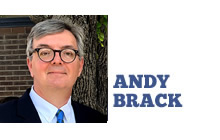 Almost a year after the attempted violent takeover at the U.S. Capitol on Jan. 6 by right-wing zealots, it’s surprising how few organized efforts there are to reassert the philosophical foundations of our form of government. It’s sad, but there doesn’t seem to be that much work being done in our marketplace of ideas to smash fascist forces that want a more authoritarian government that clashes with traditional American democratic ideals.
Almost a year after the attempted violent takeover at the U.S. Capitol on Jan. 6 by right-wing zealots, it’s surprising how few organized efforts there are to reassert the philosophical foundations of our form of government. It’s sad, but there doesn’t seem to be that much work being done in our marketplace of ideas to smash fascist forces that want a more authoritarian government that clashes with traditional American democratic ideals.
Yes, there’s daily drama in Congress as it attempts to police bad behavior on Capitol Hill, including that of divisive elected officials in love with microphones and former President Donald Trump’s anti-democratic messaging. The U.S. House’s January 6 Commission has issued subpoenas and talks a good game, but there’s not much actual building of democracy — just a continuing response to what happened.
Then there are the few groups that are active about promoting and protecting American democracy. Moderate former Republican politicos started the Lincoln Project to rail against Trump’s dangers. MoveOn.org has a long history of working to reinvigorate politics, including a current effort to expel sitting members of Congress who were complicit in what happened on Jan. 6. And then there’s the Black Lives Matter movement that erupted to protest un-American treatment of minorities and reform of democracy and its institutions.
While these efforts make headlines, they’re blips of the collective radar of most Americans, who seem to sit by idly as if democracy were a spectator sport. If we are to ensure the next decade is less polarizing with people working together, we might take some lessons from South Africa as it transitioned in the 1990s from apartheid and minority white control to more inclusive democracy.
John L.S. Simpkins, a constitutional law scholar from Lexington who serves as president of the MDC think tank in North Carolina, was in South Africa for two years during its transition. A former Obama Administration official, he’s helped small African republics work to strengthen their democratic institutions and build equity. We recently asked what lessons could be learned from what he saw in South Africa while working there after graduating from Harvard 30 years ago:
“One of the key lessons was the critical role of a vibrant civil society,” Simpkins said. “During the waning years of apartheid, civil society organizations — legal aid centers, investigative journalists and community organizers — effectively operated as a ‘shadow government,’ exposing government misdeeds, responding to community concerns and developing the next generation of leaders.
“The erosion of the civil society sector in the United States deprives the nation of an important bulwark against anti-democratic forces.”
Now in America, we need to do more work to build democracy. Some suggestions:
Common goal on common good. Liberal, moderate and conservative think tanks, nonprofits, foundations, academics, doers and religious organizations need to unite to build the common good and promote democratic institutions. These groups need to invest in pro-democratic messaging to build on our freedoms. We need to turn down the rhetoric and build solutions to real problems. Let’s show what democracy can do and re-engage everyday citizens.
Civics education. Too many Americans don’t understand our democracy and what it can do. Schools need to offer more real civics education so Americans understand their proud heritage of freedom — and can make it work better.
Better watchdogs. The Twitterization of messaging — short, simple and dumbed-down — doesn’t help to promote understanding. There needs to be better communication from pro-democratic forces of the dangers of rising fascism and authoritarianism in America from enemies who are domestic (white nationalist groups) and foreign (Russian internet trolls). We also need to train Americans better on how to understand manipulative messages and how to counteract them.
There’s a lot of work to do, but it’s in our interest to work together to root out the rot that has been undermining our democracy. Get off the sidelines and fight for America now.
Andy Brack is editor and publisher of Charleston Currents, and publisher of the Charleston City Paper. Have a comment? Send to: editor@charlestoncurrents.com.
Charleston RiverDogs
 The public spiritedness of our underwriters allows us to bring Charleston Currents to you at no cost. This issue’s featured underwriter is the Charleston RiverDogs, who won the first championship in franchise history in 2021. By becoming the Low-A East champions, the team brought home the first championship to the Holy City since 1922.
The public spiritedness of our underwriters allows us to bring Charleston Currents to you at no cost. This issue’s featured underwriter is the Charleston RiverDogs, who won the first championship in franchise history in 2021. By becoming the Low-A East champions, the team brought home the first championship to the Holy City since 1922.
The Lowcountry’s leader in sports entertainment, Charleston RiverDogs baseball is an attractive, affordable medium for your group or business. The RiverDogs, now affiliated with the Tampa Bay Rays, offer one of the finest ballparks in Minor League Baseball — Joseph P. Riley, Jr. Park.
Three short words sum up the everyday approach taken by the Charleston RiverDogs front office. The brainchild of club President Emeritus Mike Veeck, the nine-letter phrase “Fun Is Good” is meant to be a guideline and daily reminder of how employees should approach their jobs and in turn capture the imagination of the fans to turn them into repeat customers.
- Visit the ‘Dogs online at: RiverDogs.com
- To meet all of our underwriters, click here.
5 things we learned about S.C.’s redistricting
By Andy Brack, a news analysis | State lawmakers will be in Columbia today to put final touches on new state House, Senate and congressional maps that will be used for the next 10 years for elections. While the state Senate map has been viewed as pretty good, the maps for House and Congress have been widely panned by observers who say incumbents are just protecting incumbents. Here’s an excerpted version of what we learned last week.
-
Not competitive. The new maps generally aren’t competitive, meaning that it’s predictable who or what party will win before any election is held. “Safe” districts are mostly drawn for Republicans or Democrats, even in areas that could have districts configured so that a Republican, Democrat or third-party candidate could win.
The best congressional example is the proposed First District on the coast where a Democrat, Joe Cunningham, won in 2018, but lost in 2020 to now-U.S. Rep. Nancy Mace, a Republican. The proposed district splits Charleston County and makes it a more Republican district, effectively insulating Mace from a Democratic challenge. “The maps are awful,” Cunningham told the Senate redistricting committee this week. “They make no sense, unless, of course, the sole purpose of these maps is to make it harder for a Republican to lose.” [See video.]
- Little elected input. When one senator asked how many congressmen offered input into the congressional map, a state Senate staffer said only U.S. Reps. Joe Wilson, a Republican, and Jim Clyburn, a Democrat, gave information before it was drafted. S.C. Sen. Margie Bright Matthews, D-Colleton, complained she wasn’t consulted about the congressional map. According to The State, “No members of the S.C. Senate redistricting committee were apparently consulted” either.
- Harms turnout. Cunningham pointed to how the new maps denigrate democracy, instead of promoting it. In testimony, he said he understood why people thought it wasn’t worth voting these days because the results seemed largely predetermined due to the way the maps are drawn. “They have a damn good point,” he said, according to reporting by The State.
- Racial bias. The congressional map, in particular, was criticized for how it used race as a factor. According to The Post and Courier, “District 1 would represent the fewest Black residents of South Carolina’s seven seats, at 68 percent white and 17 percent Black, while the population of [Clyburn’s neighboring] District 6 would fall to just below 50 percent Black.”
- Meaningless “transparency.” While state House and Senate members traveled the state to get public input for mapmaking, Lynn Teague of the League of Women Voters of South Carolina wondered whether the House’s outreach effort was just for show, noting, “if they actually listened to anything said, it wasn’t evident in the resulting map.”
In other recent news:
![]() S.C. has 1,000+ vacant public school teaching positions. A new survey reveals an 88 percent increase in the number of vacant teaching positions across South Carolina. That’s more than 1,000 teacher vacancies that are impacting up to 20,000 students, one organization said. The survey also showed 6,900 educators from last year didn’t return to jobs in their districts, with 18 percent retiring, 34 percent leaving for “external reasons” and 27 percent for “personal reasons.” More: The Post and Courier | WIS TV.
S.C. has 1,000+ vacant public school teaching positions. A new survey reveals an 88 percent increase in the number of vacant teaching positions across South Carolina. That’s more than 1,000 teacher vacancies that are impacting up to 20,000 students, one organization said. The survey also showed 6,900 educators from last year didn’t return to jobs in their districts, with 18 percent retiring, 34 percent leaving for “external reasons” and 27 percent for “personal reasons.” More: The Post and Courier | WIS TV.
Charleston special election to be Jan. 11. Absentee voting begins Dec. 13 to fill the vacant District 1 Charleston City Council seat vacated by Marie Delcioppo, who stepped down. Five candidates are currently running for the seat: Jen Gibson, Boyd Gregg, Shawn Pinkston, David Winkler and Tony Fogle. Read more.
S.C.’s Scott top vice presidential candidate, polls show. Since former President Donald Trump’s defeat in November 2020, speculation has been mounting about South Carolina’s U.S. Sen. Tim Scott’s White House ambitions. More: The Post and Courier.
Greene feuds with S.C.’s Mace on Islamophobia, abortion. U.S. Reps. Nancy Mace, R-S.C, and Marjorie Taylor Greene, R-Georgia, are in a public and highly personal feud over abortion and religion, amid fallout from Islamophobic remarks by some GOP lawmakers. More: The Washington Post | Politico. Related: Mace’s chief of staff resigns.
Former S.C. gubernatorial candidate to pay $33k to end ethics case. Charleston Democrat Phil Noble has agreed to pay more than $30,000 in fines and refunds for violating state ethics laws during his failed bid for governor in 2018.
S.C. Libertarian Party calls another secession for S.C. ‘OK.’ It may not have worked out so well in 1861, but a group of anti-big government South Carolinians says it supports the right of the state and its citizens to secede from the Union in 2021, according to The Post and Courier.
- Want more headlines every business day that are like this? Visit our friends at SC Clips.
Send us your thoughts by email
We love hearing from readers. Comments are limited to 250 words or less. Please include your name and contact information. Send your letters to: editor@charlestoncurrents.com. | Read our feedback policy.
Pointy
Here’s something sharp for pointy-headed readers to identify. What and where is it? Send your best guess to editor@charlestoncurrents.com. And don’t forget to include your name and the town in which you live. And if you’ve got a clever mystery photo for our readers, send it to the same address (Try to stump us!)
Our previous Mystery Photo
 Last week’s mystery, “Jet lake,” showed an airplane peninsular pond on Boeing Avenue near Charleston International Airport. Thanks to Georgia’s Rob Ponder for the photo.
Last week’s mystery, “Jet lake,” showed an airplane peninsular pond on Boeing Avenue near Charleston International Airport. Thanks to Georgia’s Rob Ponder for the photo.
Congrats to readers who identified the shot: Bill Segars of Hartsville; Charles Ford of Goose Creek; D.J. Strickland of Louisville, Ky.; Christel Newton of North Charleston; George Graf of Palmyra, Va; Chris Brooks and Kirk Zerangue, both of Mount Pleasant; Allan Peel of San Antonio, Texas; Craig Bennett of Charleston; and Jay Altman of Columbia.
Peel shared, “Measuring over 1,400-feet long by 550-feet wide, the pond is about 15 football fields in size. It can hold the same amount of water as 100 Olympic-size swimming pools. The land mass that juts out into the pond looks like a jet airplane and is huge … 1.5-acres in size.”
Send us a mystery: If you have a photo that you believe will stump readers, send it along (but make sure to tell us what it is because it may stump us too!) Send it along to editor@charlestoncurrents.com.
Reception for new McAbee show to be Dec. 10
Staff reports | “Even When It’s Dark” is a solo art show opening Dec. 10 that will highlight the work of artist Doug McAbee at Charleston’s Redux Contemporary Art Center. The show, which will have an opening reception at 5 p.m. on its first day, will run through Jan. 22, 2022.
According to the center, “McAbee was taught the power of laughter and humor by his father and he seeks to channel that power into his creative work. With the understanding that art has the power to change how people think, McAbee has chosen to communicate positive and hopeful messages to his audience through his work.”
The drawings on wood, steel sculptures, and murals represented in “Even When It’s Dark” are approachable by viewers of all ages. As viewers engage with the works of art they will connect with the absurdity, the liveliness, and the humor in the work. Whether for a few seconds or perhaps longer, the artist’s hope is that connection will create change.
A Spartanburg native, McAbee holds a master’s degree in fine arts from Winthrop University and works as an associate professor of art at Lander University in Greenwood.
The exhibition can be viewed at the center, 1056 King St., Tuesday through Friday from 11 a.m. to 4 p.m. More.
Also on the calendar:’
![]() Holiday Festival of Lights: 5:30 p.m. to 10 p.m, through Dec. 31, James Island County Park.. Visitors can drive through the impressive three-mile light spectacle with more than 750 illuminated displays. The festival also includes other holiday activities like train rides, marshmallow roasting, a climbing wall and more. There also will be a Winter Wonderland, which features the area’s largest holiday sand sculpture made from more than 50 tons of sand. You and your family can also explore the shops, an enchanted walking trail and the amazing dancing light display. Tickets It is recommended that visitors purchase tickets in advance online.
Holiday Festival of Lights: 5:30 p.m. to 10 p.m, through Dec. 31, James Island County Park.. Visitors can drive through the impressive three-mile light spectacle with more than 750 illuminated displays. The festival also includes other holiday activities like train rides, marshmallow roasting, a climbing wall and more. There also will be a Winter Wonderland, which features the area’s largest holiday sand sculpture made from more than 50 tons of sand. You and your family can also explore the shops, an enchanted walking trail and the amazing dancing light display. Tickets It is recommended that visitors purchase tickets in advance online.
Elf the Musical returns: Through Dec. 19, Dock Street Theatre, Charleston. The popular musical, sold out in Charleston in 2019, returns for several holiday performances by actors at Charleston Stage. Based on the 2003 film starring Will Ferrell, the musical tells the story of Buddy the Elf who is transported from Santa’s Workshop to New York City. Click here for times and tickets, which range from $32 for students to $36 to $75 for adults..
Winter Wonderland exhibit. Through March 27, 2022, Lowcountry Image Gallery, The Charleston Museum, 360 Meeting St., Charleston. This exhibit showcases colorized photographs of remarkable snow days captured by residents of Charleston dating to the late 19th and early 20th centuries. More on tickets and hours.
Birds of Prey flight demonstrations: 10:30 a.m. to 11:30 a.m. on Thursdays and Saturdays, Center for Birds of Prey, 4719 Highway 17. Awendaw. The center has reopened its doors to visitors after closing due to the COvID-19 pandemic, inviting people to once again come and explore the world of raptors through an outdoor program and flight demonstration. Tickets: . $20/adult; $15/children age 3-17.
Bird-watching at Caw Caw. Every Wednesday and Saturday — particularly through the end of February — you can see a plethora of birds at Caw Caw Interpretive Center in Ravenel as they make their way through the Lowcountry. The two-hour regular walks, which start at 8:30 a.m., are through distinct habitats that allow participants to view and discuss a variety of birds, butterflies, and other organisms. Registration is not required. Participants are encouraged to bring their own binoculars. A paid chaperone is required for participants ages 15 and under. Max. 10 participants. Fee: $9; free for Gold Pass holders. Open to all ages. More: Caw Caw Interpretive Center.
- For more events, see this calendar.
Farmers markets
Closing in December
Holy City Farmers Market: 4 p.m. to 7 p.m., every Wednesday, Holy City Brewing, North Charleston. vendors rotate weekly to provide shoppers with a tiny but mighty shopping experience. vendors will be selling a range of products from specialty foods, home and body care to arts and crafts. More info. Closes Dec. 18 with holiday market.
Open year-round
West Ashley Farmers Market: 3 p.m. to 7 p.m., every Wednesday, Ackerman Park, 55 Sycamore Avenue, Charleston. More.
Sunday Brunch Farmers Market: 11 a.m. to 3 p.m., every Sunday, Charleston Pour House, 1977 Maybank Highway, James Island. While the market is discouraging people from spending too much time hanging out during the market, everyone is invited to shop their local vendors. More info.
Sea Island Farmers Market: 9:30 a.m. to 1:30 p.m., every Saturday. Charleston Collegiate Campus, 2024 Academy Rd., Johns Island. More.
Goose Creek Farmers Market: 9 a.m. to 1 p.m., every Saturday, 519 N. Goose Creek Blvd., Goose Creek. More.
- If you have any online events, drop us a line (editor@charlestoncurrents.com) and make sure to put “Online event” in the subject line. Similarly, if you’ve got cool ideas for stuff to do while in isolation at home, send them our way.
- ORDER NOW: Copies of our new book, 350 Facts About Charleston, are in Lowcountry-area bookstores now, but if you can’t swing by, you can order a copy online today.
- Now available as an e-book!
We encourage you to FORWARD your issue of Charleston Currents to your friends and encourage them to subscribe. It’s got a great price, as you know: Free! And it includes cool stuff about the community that’s hard to find elsewhere. We hope they’ll enjoy our coverage.
- DONATE. Now also would be a great time to contribute as we deal with the crisis. In advance, thank you.
OUR UNDERWRITERS
Charleston Currents is an underwriter-supported weekly online journal of good news about the Charleston area and Lowcountry of South Carolina.
- Meet our underwriters
- To learn more about how your organization or business can benefit, click here to contact us. Or give us a holler on the phone at: 843.670.3996.
OUR TEAM
Charleston Currents offers insightful community comment and good news on events each week. It cuts through the information clutter to offer the best of what’s happening locally.
- Mailing address: P.O. Box 21942, Charleston, SC 29413.
- Phone: 843.670.3996
Charleston Currents is provided to you weekly by:
- Editor and publisher: Andy Brack, 843.670.3996
- Contributing editor, common good, Fred Palm
- Contributing editor, money: Kyra Morris
- Contributing editor, Palmetto Poem: Marjory Wentworth
- Contributing photographer: Rob Byko
- Charleston Currents also uses content from the outstanding staff at the Charleston City Paper, a sister publication.
SUBSCRIBE FOR FREE
Subscriptions to Charleston Currents are free.
- Click here to subscribe.
- Unsubscribe. We don’t want to lose you as a reader of Charleston Currents, but if you must unsubscribe, you will have to do it through the email edition you receive. Just go to the bottom of any of your weekly newsletters and click the “unsubscribe” function. If that doesn’t work, please send us an email with the word “unsubscribe” in the subject line.
- © 2008-2021, City Paper Publishing, LLC. All rights reserved. Charleston Currents is published every Monday by City Paper Publishing LLC, P.O. Box 21942, Charleston, SC 29413.


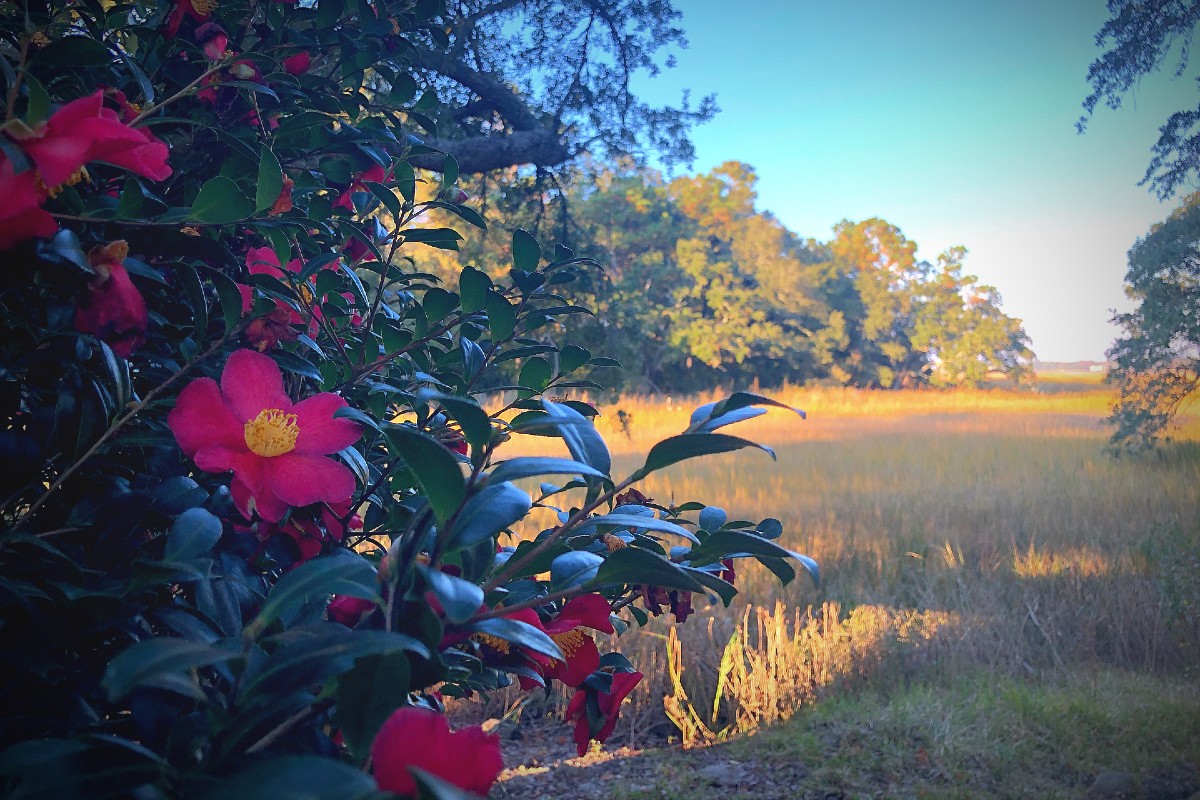
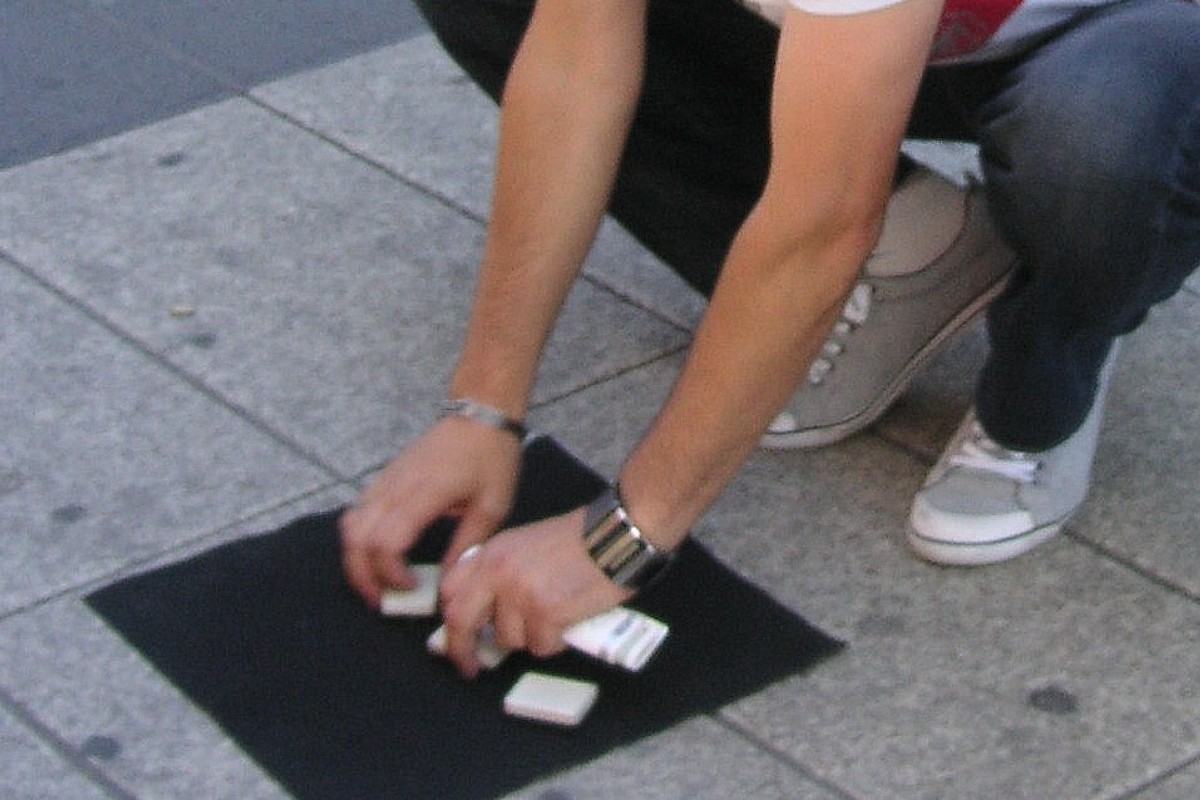

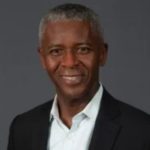
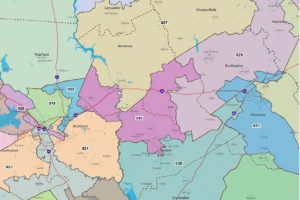

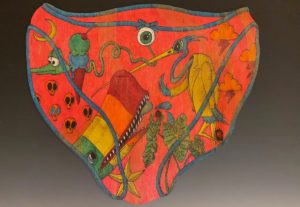


 We Can Do Better, South Carolina!
We Can Do Better, South Carolina!
























